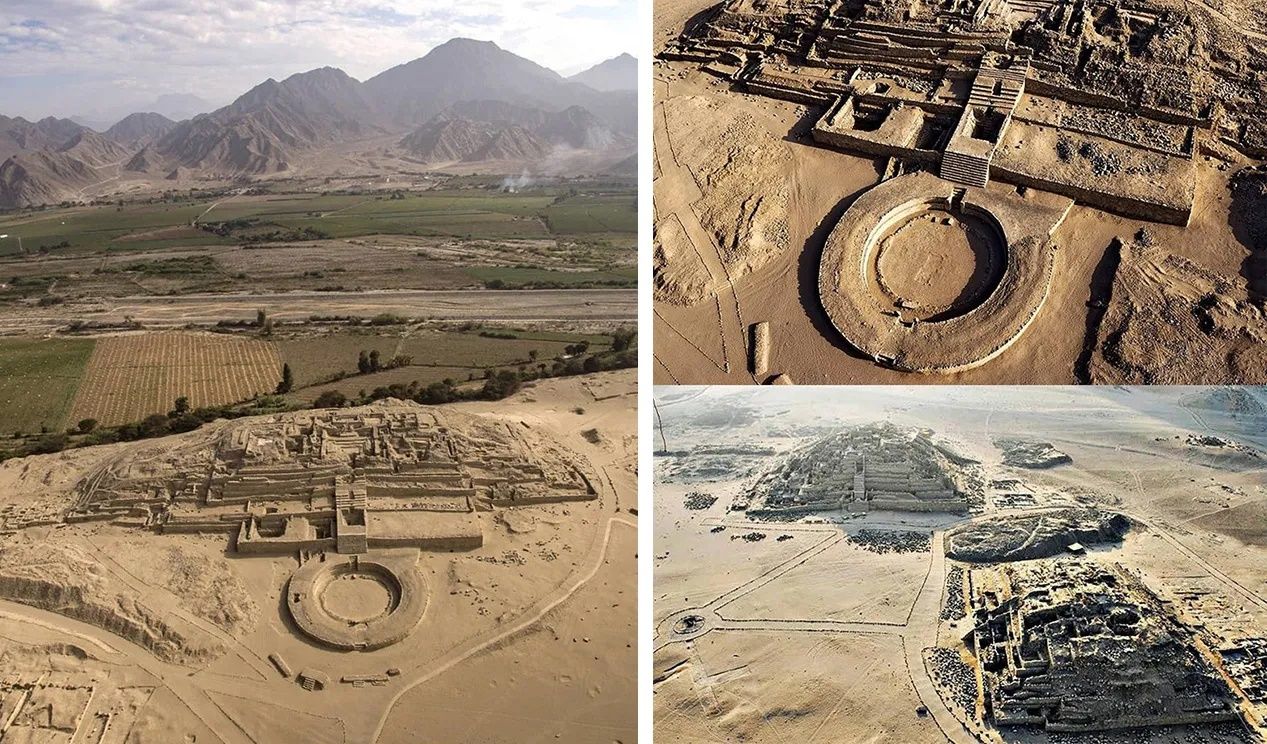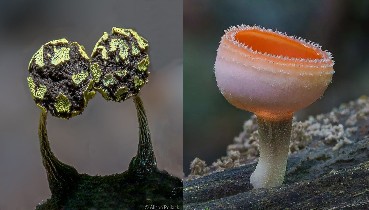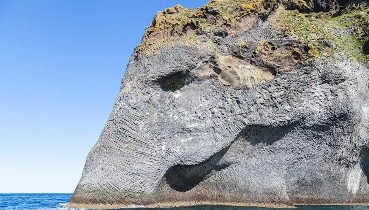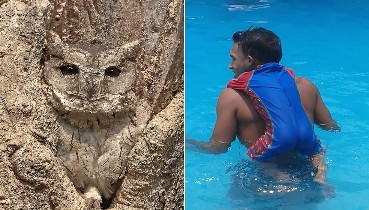

5000-Year-Old Sacred City of Caral is the Oldest Civilization in the Americas
The sacred city of Caral is a 5000-year-old archaeological site on a desert terrace in Lima, Peru. Dating back to the Late Archaic Period of the Central Andes, the site is the oldest urban center of civilization in the Americas. Additionally, the Caral culture is 1500 years earlier than the Olmec civilization, the first complex Mesoamerican society. The site has been a UNESCO World Heritage Site since 2009.

Developed between 3000 and 1800 BC in the Supe Valley, the sacred city of Caral is the oldest urban center in the Americas.

Due to its late abandonment as well as late discovery, the site has reached today in an exceptionally well-preserved condition. The lack of silver and gold finds also helped prevent the ancient city from getting looted. It also seems that Caral set a model for the urban design used by the Andean civilizations. The sacred city features elaborate monumental architecture with its earthen platform mounts, sunken circular courts, and six large pyramidal structures.

Among the finds at Caral, there is a knotted textile called a quipu which was used by the Andean civilizations to record information. Other finds in general show no evidence of warfare or body mutilation, indicating that there lived a peaceful society. In fact, they were rather artistic people who crafted flutes out of bird bones and cornetts out of deer and llama bones.






Recommended Videos
 Flock Of Hummingbirds Gather In Bird Bath For A Mini Pool Party83 views
Flock Of Hummingbirds Gather In Bird Bath For A Mini Pool Party83 views Miley Cyrus's 25 Wildest Outfits of All Time24191 views
Miley Cyrus's 25 Wildest Outfits of All Time24191 views-
Advertisements
 50 Epic Christmas Design Fails That You Will Find Hard To Believe Actually Happened6100 views
50 Epic Christmas Design Fails That You Will Find Hard To Believe Actually Happened6100 views 30 Unusual and Unique Birds in The World15987 views
30 Unusual and Unique Birds in The World15987 views The Amethyst Mushroom Is Like A Galaxy64 views
The Amethyst Mushroom Is Like A Galaxy64 views Dazzling Macro Photographs Reveal the Magic of Tiny Fungi and Slime Molds393 views
Dazzling Macro Photographs Reveal the Magic of Tiny Fungi and Slime Molds393 views Netizens Share Fascinating Facts About Genetics, Here Are The 55 Most Interesting299 views
Netizens Share Fascinating Facts About Genetics, Here Are The 55 Most Interesting299 views Transparent Juvenile Surgeonfish73 views
Transparent Juvenile Surgeonfish73 views



